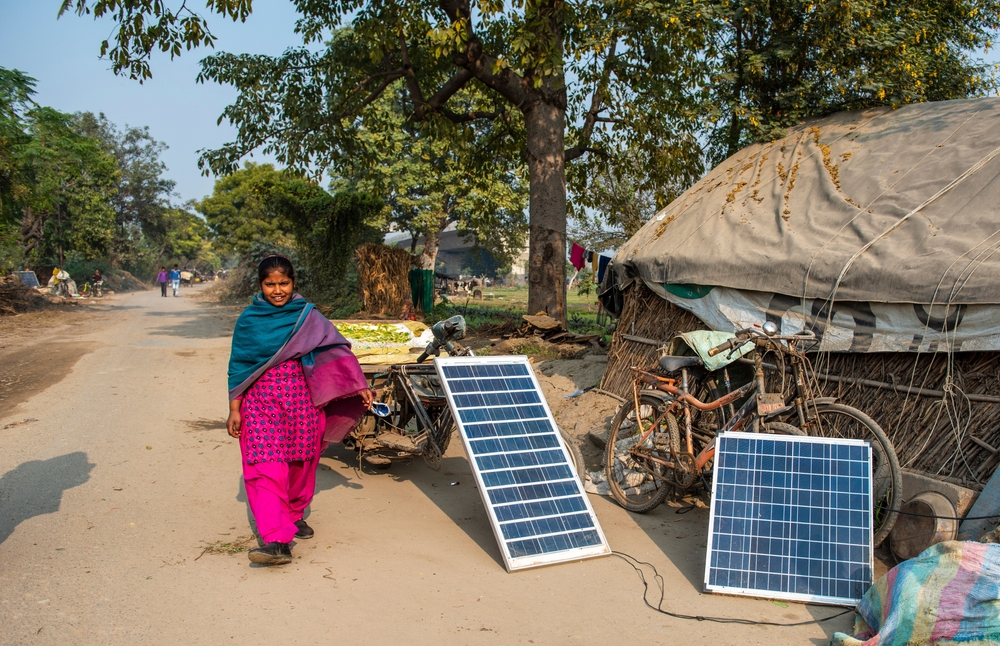In the US, venture backed investments are failing at rates not seen since the Great Recession. The market forces slamming these companies are also hitting global VC and impact investments.
While the external pressure at this moment is particularly acute, failure is not new to entrepreneurship. Failure is baked into the entrepreneurship rhetoric as the secret to success, but rarely are those lessons shared with the wider world. I believe that impact investors leave value on the table if we only share our successes.
In the world of investing, successful entrepreneurs are heroes and their early investors are applauded for identifying future geniuses and for the outsized returns that their investments yield. Impact investing is not that different. Investors often accentuate the victories, but we all know failures occur just as frequently, if not moreso, than successes.
Risk is inherent in the work that Acumen and many of our peers take on, as our investments seek to prove out solutions or approaches that often have not been demonstrated before. And greater risk means a greater chance of failure. Failure for social enterprises is more than just a lack of financial viability; it is also the absence of impact.
Acumen has spent the last year reflecting on the lessons from our own failed investments. There are three lessons in particular that are vital for the impact investing sector.
Extract as much learning from our failures as possible
Failures are moments of understanding of what continues to be broken in the system and where we need to keep iterating. There’s a reason it took Thomas Edison 2,774 tries to create the lightbulb. Innovation is born from trial and error, experimentation and iteration, success and failure. And nowhere is innovation more critical than social entrepreneurship, where we urgently need to move beyond the status quo.
In the late 2000s, Acumen invested in for-profit, business-to-consumer approaches. We saw commercially-successful businesses fail that tried to pivot downmarket, where they did not understand the customer nor how the offering needed to shift. In one case, when a clinic operator’s model to reach low-income communities became unviable, they abandoned the operation and pivoted to higher-income clients, leaving those in need of their services behind.
In other instances, we tried to convert non-profits into for-profits, but struggled to build a business case where one did not exist. These failures taught us that investors must start from the problem-up and encourage organizations to structure themselves to fit their purpose.
Share those learnings with the sector
Capital is scarce. According to the GIIN, six out of seven emerging market impact investors focus on the financial services sector, which makes up 49% of their portfolios. That leaves little capital for other impactful sectors, and innovative companies.
For example, agri-food small and medium-sized enterprises, or SMEs, form the backbone of supporting smallholder farmers and play a pivotal role in agricultural systems in emerging markets. These companies face an annual financing gap of $106 billion, Yet, 85% of the funding that the sector does receive goes towards larger, more mature agriculture companies. As a result, highly impactful agri-SMEs struggle to access the necessary working capital.
Transparent dialogue about the failures in the sector led to solutions like Aceli Africa, a new agricultural lending practice. Their model bridges the gap between microfinance and commercial banking by using an innovative blended finance structure that provides critical debt and aligns impact with returns.
We can also work in concert with other investors through fora like the GIIN and the Council on Smallholder Agricultural Finance (CSAF), so we do better by creating spaces for learning that empower better choices.
Even when experimenting, put people first
The cost of experimentation is high. Our good intentions are key to exploring the possibilities, but that exploration must be careful. When we get it wrong or fall short, the people who end up paying the price often cannot afford it, so we must recognize where we need better practices and protections.
Between 2015 and 2020, equity started pouring into the pay-as-you-go solar sector by investors excited to scale the model. But along with the excitement came overselling, faulty diligence, and limited underwriting. People living in poverty were harmed. Entrepreneurs and investors took responsibility and acknowledged our failure. In 2019, GOGLA launched its Consumer Protection Principles, and it continues to improve its efforts to avoid customer harm and help companies scale responsibly. Other sectors can and should follow suit by watching carefully for signs of concern and implementing clear guidelines for consumer and labor protection.
When we collaborate and share, we move forward exponentially. As an industry, we have made great strides, from a niche dialogue to a sector with over $1.1 trillion under management. Yet at a time when we need more creativity and audacity, we are seeing a focus on the safe and the proven.
We cannot let a fear of failure stop us from taking the necessary risks. We need real conversations about where we struggle, what we have learned, and what we need more of. In a world of dire problems and limited resources, the only real failure is to keep making the same mistakes.
Amrita Bhandari is chief of insights and strategy at Acumen











